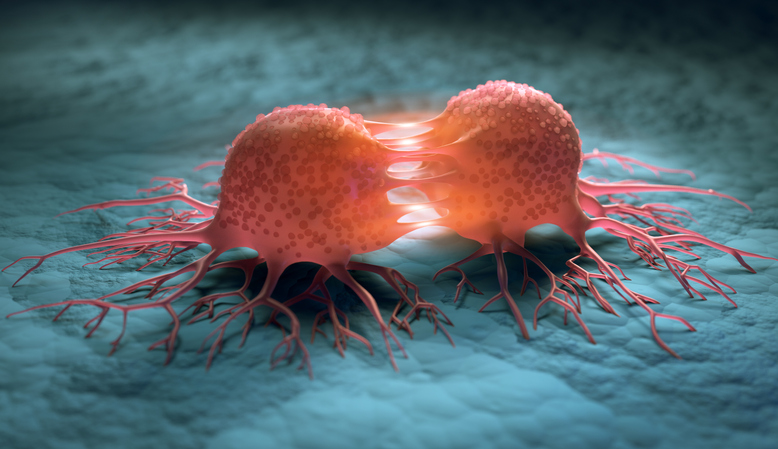Pain
What Is Cancer?

Cancer is a term used to describe a group of related diseases wherein abnormal cells begin to continually divide and spread into surrounding tissues. Cancer can develop anywhere in the body. Normally, cells in the body grow and divide as needed; for example, when a cell gets old, becomes damaged, or dies, a new cell takes its place. Cancer disturbs this process: cells become more and more abnormal, damaged cells don’t die, and uncontrolled abnormal cell growth occurs.
Depending on the type of cancer, a solid tumor or mass of tissue may develop. Cancerous tumors are malignant, meaning that they spread and invade nearby tissue. Cancerous cells can also travel to other parts of the body via the lymphatic system or bloodstream and form a new tumor.
Not all tumors are cancer. Some are benign tumors that do not spread or invade other tissues. Benign tumors are generally not life-threatening, except for those that develop in the brain.
Cancer is the second-leading cause of death in the world. Oftentimes, if cancer is detected and treated early, the disease can be slowed or stopped.
Signs and symptoms
Signs and symptoms of cancer vary depending on the location of the cancer and the type of tissue affected. Some generalized symptoms include, but are not limited to, the following:
- Fatigue
- Sore that does not heal
- Wart or mole that changes in appearance or other unexplained skin changes
- An unusual lump anywhere on the body
- Unusual weight loss or gain
- Changes in bowel or bladder habits
- Difficulty swallowing
- Persistent indigestion or discomfort after eating
- Persistent cough or hoarseness
- Persistent, unexplained muscle or joint pain
- Persistent, unexplained fevers or night sweats
- Unexplained bleeding or bruising
Causes
Cancer occurs as a result of mutations to the DNA within cells. An individual can either be born with a genetic mutation, or more commonly, mutations develop during an individual's life. Mutations are common during cell growth and are usually fixed by mechanisms within the cells. However, if a mutation is missed and not repaired, the cell may become cancerous. The exact reason why some mutations turn into cancer or the number of mutations that must accumulate for cancer to form is unknown.
Risk factors
Factors that increase the risk of developing cancer include the following:
- Age (The risk of cancer increases with age.)
- Genetic predisposition or family history
- Chronic health conditions, such as ulcerative colitis
- Environmental exposure to toxins, such as radon, asbestos, etc.
- Exposure to radiation, including X-rays, radiation therapy, or excess exposure to sunlight
- Hormone replacement therapy
- Unhealthy diet
- The habit of smoking or exposure to second-hand smoke
- Excessive alcohol use
- Unsafe sex
- Excess weight
Adopting healthy lifestyle habits and avoiding toxins can reduce the risk of certain types of cancer. Regular checkups and cancer screenings can help detect the disease in its early stages, making treatment more successful.










